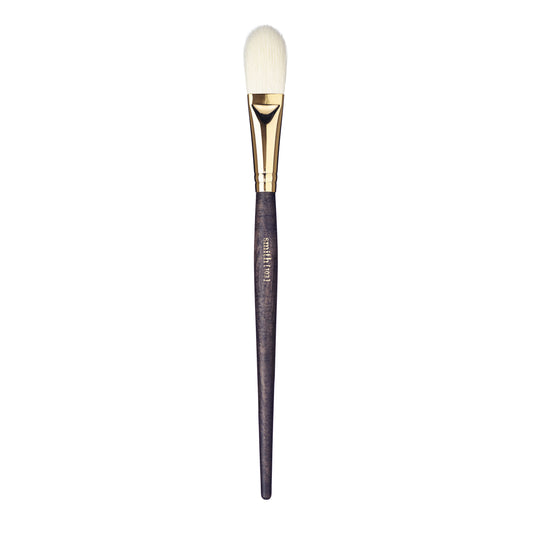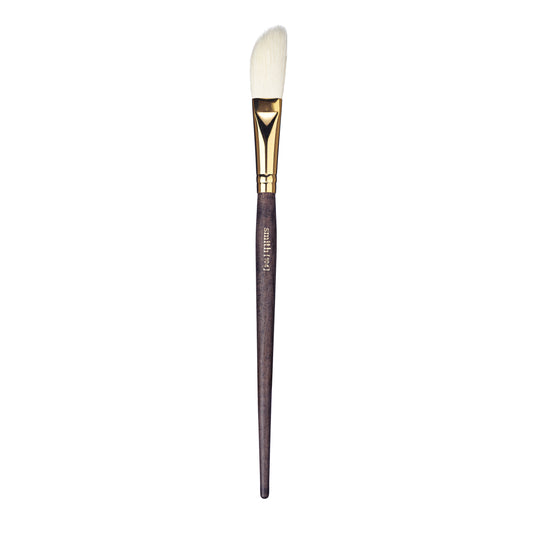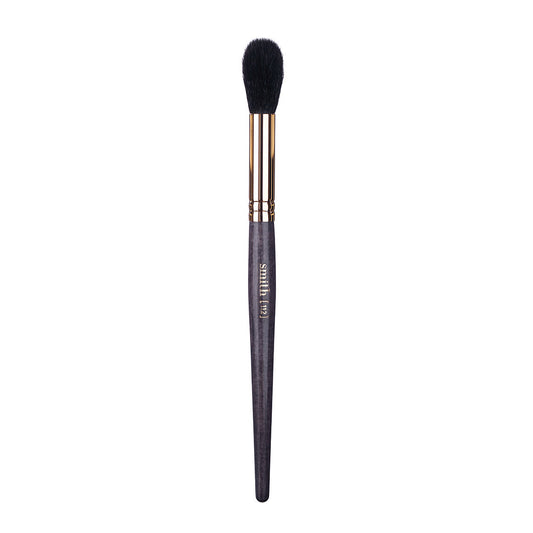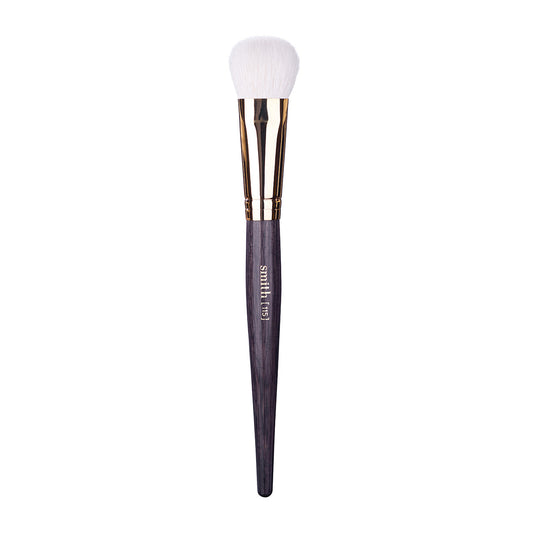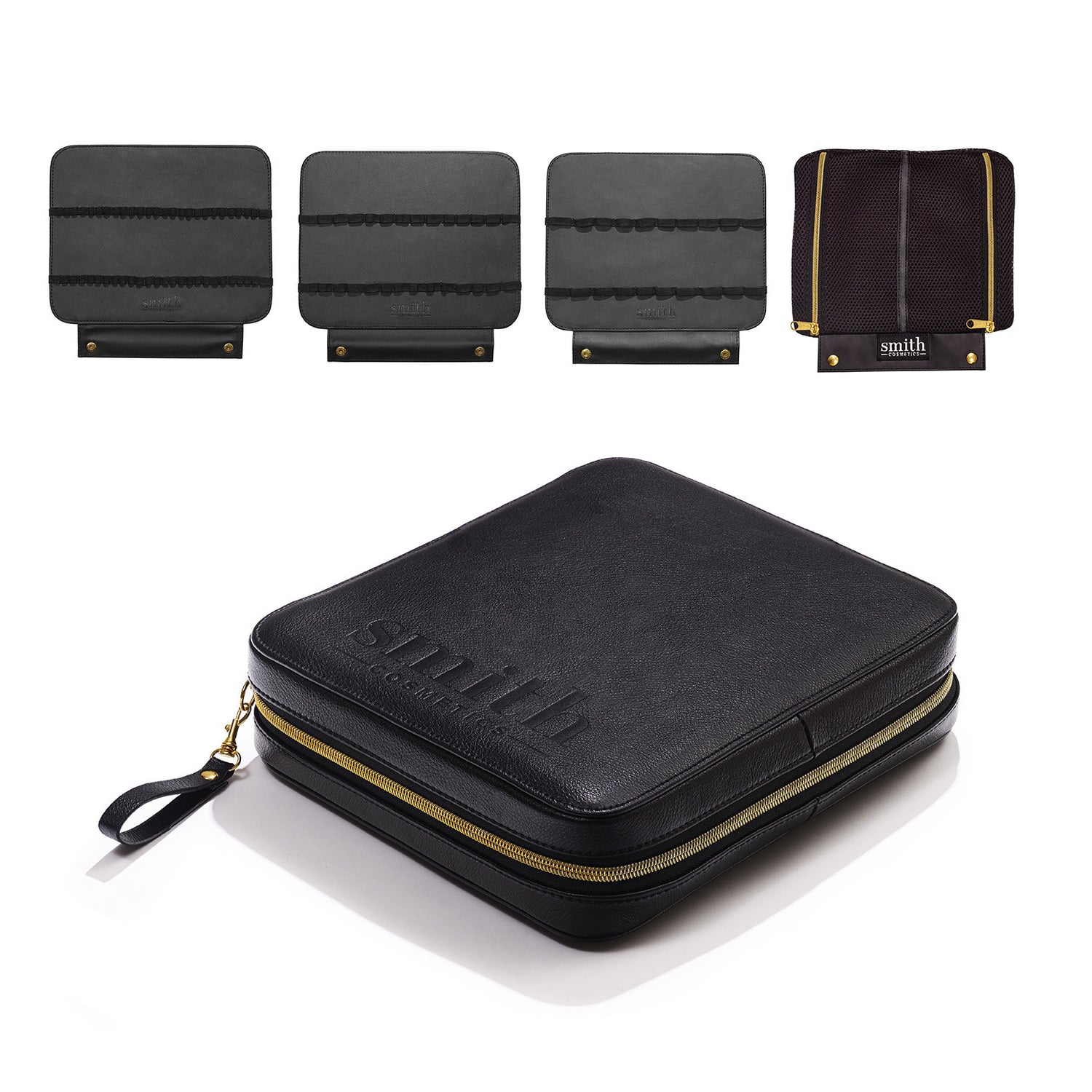Makeup brushes play a crucial role in how your products apply and blend. But one of the biggest debates is whether natural hair or synthetic brushes are better. The truth? There’s no single answer (don't hate us for saying this). Each type has its strengths, and the best choice depends on your makeup routine, preferences, and products.
Natural brushes are known for their seamless blending and ability to pick up powder products effortlessly. On the other hand, synthetic brushes can blend heavy or thick makeup products that natural hair brushes may struggle with. Let’s break down the key differences so you can decide which brush type works best for you.
What Are Natural Hair Makeup Brushes?
Natural brushes are made from animal hair , typically sourced from goats, squirrels, or ponies. The fibers contain cuticles , tiny overlapping scales that grip and distribute powder evenly. This natural texture makes them ideal for blending powder eyeshadows, blush, bronzer, and setting powders as they slowly release pigment from the cuticles as you blend.
Since natural fibers are porous, they hold onto powders exceptionally well , making it easier for you to achieve a soft, diffused, and airbrushed look . They also tend to get better over time , becoming even softer with regular use.

Pros of Natural Brushes:
Excellent for blending powder products
Holds onto pigments well, allowing for better color payoff
Soft, durable, and can last for years with proper care
Cons of Natural Brushes:
- More expensive than synthetic brushes
Requires careful cleaning to prevent damage
Fibers can be stained by strong color pigments
If you use a lot of powder-based products and want the most seamless application , natural brushes are an excellent investment. They do require more maintenance and a higher price point compared to synthetic options, however they are likely an investment that will last a lot longer than comparable synthetic brushes.
What Are Synthetic Makeup Brushes?
Synthetic brushes are made from man-made fibers such as nylon or taklon . Unlike natural fibers, synthetic bristles are completely smooth, meaning they don’t have cuticles to absorb product. This makes them perfect for liquids and creams , as they can apply products fast without soaking up excess product .
Thanks to advancements in brush technology, modern synthetic brushes are getting close to mimicking the cuticle of natural fibers but they are not there yet. However they can stand up to harder use and are easier to clean . They are a good choice for those who are just starting to learn the art of makeup or prosthetic makeup artists who use a lot of harsh cleansers and glues.
Pros of Synthetic Brushes:
- Perfect for heavy liquid and cream products like foundation and concealer
- Easier to clean since they don’t absorb makeup or oils
- More affordable and widely available (though not all synthetic fibers are created equally)
Cons of Synthetic Brushes:
Doesn’t blend powders as seamlessly as natural brushes
Some lower-quality synthetic brushes can feel stiffer and less soft
If you prefer liquids, creams, or gel-based products , or are hard on your brushes then synthetic brushes might be the best choice. They offer great precision and control while requiring less upkeep than natural brushes.

Why Cuticles Are So Important
One of the biggest differences between natural and synthetic brushes is the presence of cuticles . Natural fibers have tiny, textured scales that help pick up and distribute powder products evenly . This makes them exceptional for blending , as they diffuse pigment seamlessly onto the skin.
Because cuticles hold onto powder, natural brushes allow for buildable coverage , preventing makeup from looking patchy. They’re particularly popular for eyeshadows, blush, bronzer, and setting powders because they gradually layer product for a flawless finish .
Since cuticles can trap makeup, oil, and dirt , proper cleaning is essential to keep natural brushes soft and effective. Using a gentle brush shampoo and avoiding harsh detergents will help maintain their quality over time.
Why Synthetic Brushes Don’t Have Cuticles
Synthetic bristles are completely smooth, meaning they don’t trap product the way natural hair does. This can be an advantage when applying liquids and creams , as the brush won’t absorb excess product , allowing for less waste and an easier clean.
Natural vs. Synthetic: Which One Should You Choose?
The best brush type depends on your makeup routine and personal preferences.
For powders: Natural brushes offer the best blending and color payoff .
For heavy liquids and creams: Synthetic brushes prevent product absorption and apply evenly.
Many makeup lovers opt for a combination of both— natural brushes for powders and synthetic brushes for liquids —to achieve a flawless application for every product type.
And if you don't want to have to make a choice or don't want to sacrifice anything, Smith has amazing Duo Fiber Makeup Brushes that give you the best of both worlds. Natural fibers to blend to perfection along with synthetic fibers for perfect product placement.
Not All Natural Brushes Are Created Equal
If you’re investing in natural brushes, it’s important to understand that not all are made the same . The type of animal hair, craftsmanship, and manufacturing process all play a role in how the brush performs.
The manufacturing process matters. Handmade brushes, often found in luxury brands like Smith Cosmetics, are shaped by artisans to preserve the cuticle structure and hair tip , leading to better blending and longer-lasting performance . Machine-made brushes, while more affordable, can sometimes feel rougher as the tip of the fiber has been cut and may not offer the same level of precision.
So What Does It All Mean?
There’s no universal answer when it comes to natural vs. synthetic makeup brushes . If you prefer soft, blended powder application , natural brushes might be the right choice. If you value low-maintenance, synthetic brushes are a great alternative.
For the best makeup application, consider having a mix of both in your collection. Using natural brushes for powders and synthetic brushes for liquids ensures that each product applies flawlessly. No matter your choice, investing in high-quality brushes will elevate your makeup routine and improve your overall application.






